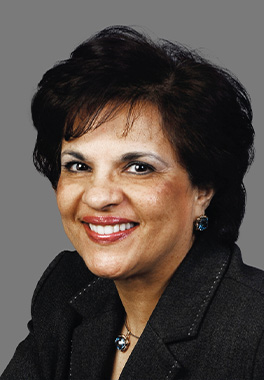
Judicial Accountability through Sexual Assault Law Training Bill
Bill to Amend—Second Reading—Debate Adjourned
June 6, 2017
The Honorable Senator Mobina S. B. Jaffer:
Senator Andreychuk, first, I want to thank you for your second reading speech. You wear two hats. You were a judge and now are a senator, so a policy-maker. When you were a judge, you and I travelled across the country to train judges on these issues, and we know the challenges we faced when we were training judges. As you said in your speech, the training was not mandatory.
I have a number of questions for you because I believe it is you who are the most expert in this place. I'm supportive of the bill, but one of the things that concerns me is that the bill calls for training of the judges before they're appointed. A concern that I've heard through the profession is that you do the training, everybody knows you did the training and then you may not be appointed. What are your views on that?
Senator Andreychuk: Thank you for the question, because it's one of the questions I posed to the originator of the bill.
I think we should start with the legal education in our universities first. We then should be training lawyers. We are highly specialized now, but I think it's important that lawyers have some generic basis to the foundation and philosophy of law. What I would envision and what this intends is some conversation between the judges and the continuing education in law societies to develop these courses and to make them available to people.
I hope that it is not seen as a stigma to take a course on sexual assault cases. It should be a duty; it should be an important information piece for all of our lawyers. They then would be equipped to be able to say, "I want to enter the field of the judiciary, and I'm coming equipped with the understanding of what's going on around me." I believe that's what it is.
The bill is crafted in such a way that it shows a direction of what we want in a policy, having heard from victims and from the community and from judges themselves. This is not coming out of the air.
I would hope that we've left the maximum discretion for the judiciary and for the lawyers to determine how best to do the education. As I said, the bill puts the emphasis on education as a preventative tool, so that we do not have the kinds of cases that seem to be popping up.
In the one case where a judge makes a finding and says, "I will give reasons," doesn't give them orally or written, and has to be found — alleged misconduct — one year later for not giving it, is this justice? I think some of the judges who have been caught up in these cases weren't out to make statements against victims. They weren't equipped, so the sooner we can equip them. That's why I have agreed with this bill, that it doesn't handcuff the judiciary to developing its own methodology, its own style, for the education. That's where it's well placed. But it is time that it be done in a more systematic way.
Senator Jaffer: Thank you. Senator Andreychuk, you've studied this bill a lot more than I have. My reading is that before you are appointed, you have to have done the training. I'm sure there will be another opportunity to visit that.
I've heard a lot from the profession that everybody has to do this training, whether they're going to tax court, Federal Court or immigration court. Every person who applies to become a judge has to do the sexual assault training. There are two points there. One is that if you're going to tax court, you still have to do this training before you're appointed. The second is, why just stop at sexual assault training? For example, why not racism training? Why not trans people's training? Where does it stop? I have these two questions for you.
Senator Andreychuk: My short answer to you is that continuing education never stops. One of the difficulties, and I know this from family law, is that we set up a specialized court, but any number of lawyers have applied to be in that court and any number of judges move from one court to another. I think we're saying that it's a critical issue now and we believe that if you wish to be a judge you should take the training. It will be helpful to you in tax court also.

